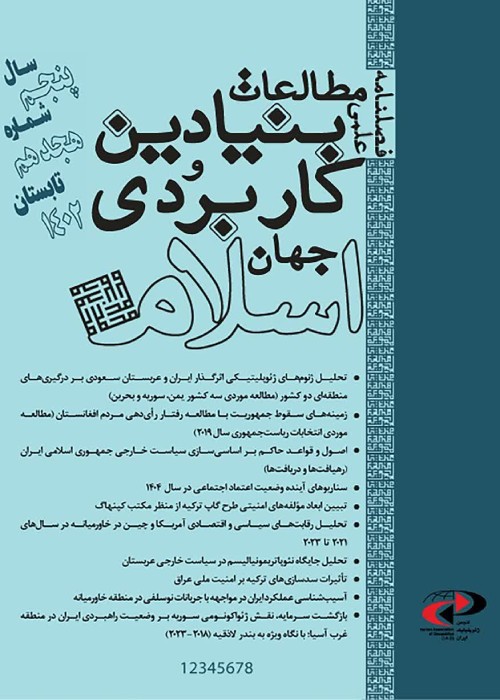Analysis of Zionist Regime Strategic Documents (National Security Strategy, Eisenkot Strategy and Military Strategy)
The usual way for most countries to set important national security priorities is to provide strategic documentation. These strategic documents are derived from the specific strategic culture of the same country, and therefore are not fundamentally different from their past strategies, and have only taken different priorities according to internal and external requirements. Whether the strategies are formally formulated in a document and made available to the public or referred to by government leaders in their speeches, they have two important functions: goal-setting and problem-solving. It shows each country's perception or worldview of the world, its place in it, possible goals and aspirations, and appropriate policies to achieve those goals.The Zionist regime has a territorial claim to its surroundings and seeks to expand its territory and sphere of national power, in order to increase its strategic depth. Israel's actions in recent years show that the actor has a confrontational approach and, given its geostrategic position and strategic culture, pursues an aggressive approach towards its neighbors and the region. Given that the policies and orientations of this actor can affect the regional security system and directly and indirectly on Iran's national security, it is necessary to refer to the strategic documents of this regime, to understand the components and strategic structures of national security of this actor. Accordingly, it is necessary to review the strategic documents and understand the perceptions and security priorities of this actor. Therefore, the research question is, how is the content of the strategic documents of the Zionist Regime?The nature of this descriptive-analytical research is from type a qualitative case study and the method of qualitative content analysis has been used to investigate the subject. The statistical population of this project is the recent strategic documents of the Zionist Regime. To investigate this issue, an attempt has been made to extract basic concepts from the existing literature and strategic documents. The five main categories used in this study include "Strategic Perspective", "Interests and Objectives", "Threats", "Tools" and "Methods of Action", and the number of sub-categories 14 and sub-categories of level two 58 is the case. Therefore, based on these main and sub-categories an attempt has been made to codify and analyze the three documents of the Zionist regime, including the National Security Strategy, Eisenkot Strategy and Military Strategy.The Zionist regime emphasizes on threats "conventional-military" such as the possibility of military operations by government actors, especially Iran, Lebanon, failed governments, and Syria with widespread conflict. as well as emphasizes threats "civilian-nonviolent and violent" such as anti-Israel sentiments for The denial of the legitimacy of the Jewish state, the promotion of economic boycotts against Israel, the growing asymmetric threat and serious damage by terrorist organizations, as well as the spread of terrorist force in densely populated areas of ownerless lands. This regime in the tools to "military and intelligence tools" and in how to use the tools is focused to "readiness and subdue" in the approach and to "unilateralism or false multilateralism" in methods of action.In general, the worldview of the Zionist regime is based on Hobbesian culture and hostility. Where there is a highly pessimistic view of the environment and the future, and in the event of war, it recognizes no boundaries for violence. Using active and preemptive strikes to achieve strategic victory and balance change, destroying the capabilities of Hezbollah and Hamas by destroying its forces, inflicting heavy damage on NGOs and destroying their infrastructure, and creating focused efforts to counter and neutralize unconventional weapons, Is one of the characteristics of the Hobbesian worldview of the Zionist regime. As well as, the revisionism of the Zionist regime's policies is another feature of this worldview. So that the Zionist regime uses, even in a normal situation (one of the triple situations of "normal, emergency and war"), a set of defensive and offensive measures, military and civilian, overt and covert to prevent the development of enemy capabilities and reduce freedom of action.
- حق عضویت دریافتی صرف حمایت از نشریات عضو و نگهداری، تکمیل و توسعه مگیران میشود.
- پرداخت حق اشتراک و دانلود مقالات اجازه بازنشر آن در سایر رسانههای چاپی و دیجیتال را به کاربر نمیدهد.



